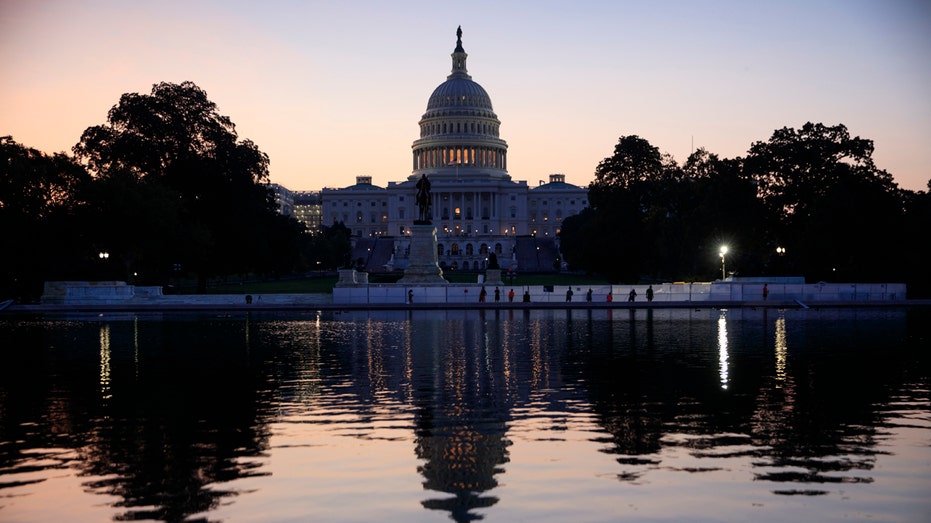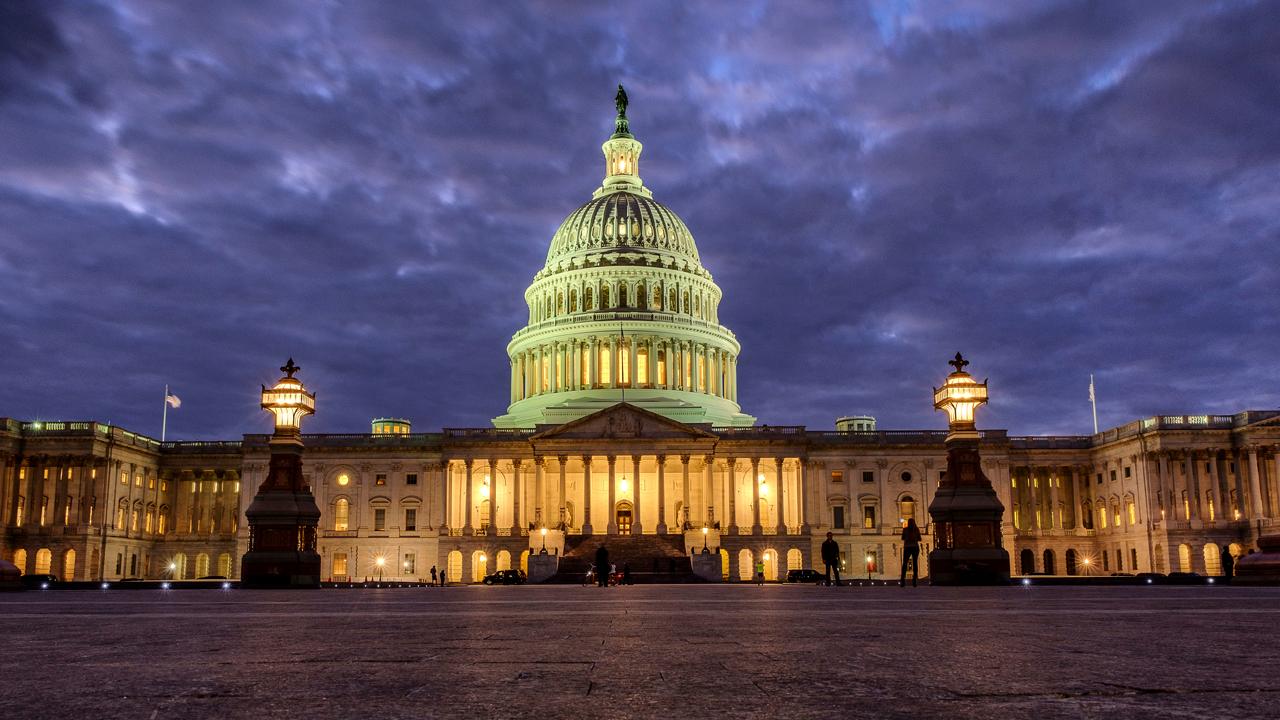Our coronavirus economic recovery requires us to get rid of earmarks
Our federal government needs to get its finances under control
The highest single monthly budget deficit in history of $864 billion in June sends a clear message that the federal government needs to get its finances under control.
The highest previous monthly deficit was $234 billion, and only five times in U.S. history has the annual budget deficit been higher than $864 billion.
US DEFICIT SOARS TO $1.9T IN 8 MONTHS
While it is understandable that this unequaled spending has occurred during an unprecedented health care and economic crisis, it nonetheless makes it more important than ever that Congress should undertake every possible step to eliminate as much wasteful spending as possible to help the country fully recover from the coronavirus pandemic.
And that effort should start with earmarks, an unfair and inequitable process through which a small group of members of Congress spends money on special interests at the expense of all taxpayers.
For the third year in a row, members of Congress have set a record for the cost of earmarks during the supposed earmark moratorium.
MODERNA STOCK SOARS FOLLOWING POSITIVE RESULTS IN CORONAVIRUS VACCINE CANDIDATE
The 2020 Congressional "Pig Book" exposes 274 earmarks, a decrease of 2.8 percent from the 282 in FY 2019.

(AP Photo/J. Scott Applewhite) (Associated Press / AccuWeather)
The Pig Book is an annual list of pork-barrel projects, or earmarks, which are costly, unfair, and inequitable expenditures that increase waste and promote corruption.
The cost of the earmarks in FY 2020 is $15.9 billion, an increase of 3.9 percent from the $15.3 billion in FY 2019.
CORONAVIRUS PHASE 4 STIMULUS BILL COMING, KUDLOW SAYS 'CONCLUSIVELY'
The cost of the FY 2020 earmarks is only 3.6 percent less than the $16.5 billion in FY 2010, the last year prior to the moratorium.
Since FY 1991, the Pig Book has identified 111,417 earmarks costing $375.7 billion.
The increase in pork-barrel spending has occurred behind closed doors and hidden from taxpayers.
There are no names of legislators attached to each earmark and limited information on where and how the money will be spent.
For example, $9 million was provided for the Appalachian Regional Commission and Delta Regional Authority in the Agriculture Appropriations bill, and another $27.5 million was added for the Delta Regional Authority in the Energy and Water Appropriations bill.
These regional commissions duplicate other federal programs, as well as state and local expenditures.
There is bipartisan support for cutting funds for the Delta Regional Authority. Former President Obama proposed a $3 million reduction, and each of President Trump’s first four budgets recommended eliminating the entire agency, as well as the Appalachian Regional Commission.
CLICK HERE TO GET FOX BUSINESS ON THE GO
Carveouts for the Department of Defense have always accounted for about half of the cost of earmarks in the "Pig Book," and in 2020, they represent 47.2 percent at $7.5 billion.
One of the worst examples of defense pork is the $2.1 billion earmarked for 22 additional F-35 Joint Strike Fighters that were not requested by the Department of Defense, six more than in FY 2019.
The F-35 has been in development for nearly 19 years and is nine years behind schedule. Its total acquisition costs now exceed $428 billion, nearly double the initial estimate.
A 2019 DOD Selected Acquisition Report found that the F-35’s lifetime operation and maintenance costs will total approximately $1.2 trillion, making it the most expensive weapon system in U.S. history.
The 2020 Pig Book also includes a slew of absurd nature-related earmarks.
Congress earmarked $65 million for the third year in a row to help recover Pacific Coastal Salmon, a record $25.8 million to manage wild horses, a record $24 million to control aquatic plants, a record $11.4 million to purchase fish screens, and $663,000 to eradicate brown tree snakes… in Guam.
Perhaps the most flagrant earmark is the $16.7 million for the third consecutive year for the East-West Center, added by Sen. Brian Schatz, D-Hawaii (of no relation to the author of this op-ed).
His earmark represents the center’s entire budget, keeping it alive even though its counterpart, the North-South Center, stopped receiving federal funding in 2001.
The East-West Center should be able to stand on its own without taxpayer support as well.
Taxpayers must always remember why the 2011 moratorium was necessary in the first place.
After high-profile boondoggles like the Bridge to Nowhere and a decade of scandals in the 2000s that resulted in jail terms for congressmen and lobbyists, Washington could no longer abide keeping the practice in place.
The late Sen. John McCain, R-Ariz., said that the problem with all of the arguments by earmark proponents is “the more powerful you are, the more likely it is you get the earmark in. Therefore, it is a corrupt system.”
The late Sen. Tom Coburn, R-Okla., called earmarks “the gateway drug to Washington’s spending addiction.”
Pork-barrel earmarks still hold the power to corrupt members of Congress, waste taxpayer money, and erode trust in government.
CLICK HERE TO READ MORE ON FOX BUSINESS
The best way to safeguard taxpayers is for Congress to enact a permanent, statutory ban on earmarks.
Tom Schatz is President of Citizens Against Government Waste.




















